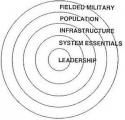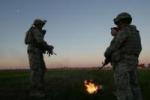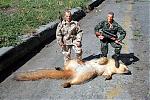Rob, anyone,
I just saw a short clip from a weekend tv show with the President. After being asked a question he expressed some concern about how A'stan links to leading to the real enemy AQ, as in if we are successful in A'stan we will still have to deal with AQ. I think that is valid concern because AQ is a parasite they can still go anywhere they could infiltrate including the US regardless of how A'stan turns out. Maybe the General Krulak plan has merit?











 !
! .
.




Bookmarks